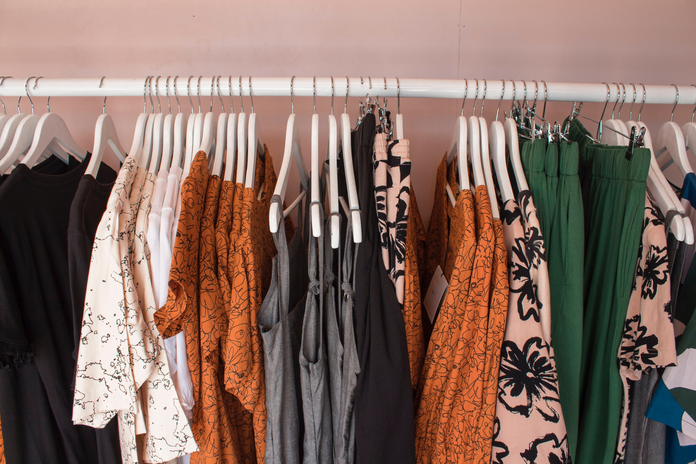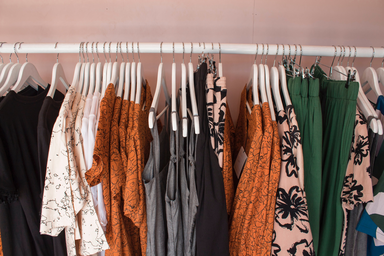There’s a new kind of pandemic circling among us. You may not notice the symptoms, but it’s everywhere. That new top your friend bought just to go clubbing. That pair of jeans from Forever 21 that ripped after three wears. The seemingly endless stream of packages filled with clothes that your roommate saw on TikTok. I’m referring of course to the fast-fashion epidemic. The desire to get a brand new outfit for less than the price of your next Chipotle bowl does sound appealing. However, the environmental and ethical concerns of fast fashion greatly detract from the cheap price tag.
Fast fashion includes any clothing that’s made cheaply and quickly. Clothes made by fast-fashion retailers are often cheaply made, usually out of materials like polyester, and are produced in less than optimal conditions, usually in overseas factories. Fast fashion responds to ever-changing fashion landscapes, so they’re not meant to last forever. Retailers like Forever 21 and Romwe sell fast fashion clothes.
While fast fashion is a good way to try out a new trend without committing to an expensive purchase, the number of drawbacks to this short-term investment are staggering. Most obvious is the effect on the environment. For starters, according to Nature, the fashion industry overall produces over 1.2 billion tons of CO2 per year, as well as 15 million pounds of fabric waste per year. These numbers are so large that they are almost unfathomable, so let’s take it to a more personal level.

Let’s say you purchase a shirt from a fast fashion retailer. The shirt is likely made of polyester, which is a cheap, thin plastic used to manufacture clothes. Synthetic polyester is made from a reaction between two fossil fuels, coal and petroleum, causing the immense output of CO2 by polyester manufacturing.
Now, say you wear that same shirt out to dinner, and you spill some food on it. Rather than spend time getting the stain out at home, you just throw it away. After all, it was only a few dollars. The shirt will either get sent to a landfill or be burned. Given the former, the shirt will sit in that landfill for at least 20 years before any decomposition takes place, all the while leeching harmful chemicals into the ground and any nearby water supply. If the shirt takes the latter route, the shirt releases even more CO2 into the air when it’s burned. In both instances, your carbon footprint increases exponentially, and the environment suffers as a result.
Fast fashion also promotes huge ethical concerns. Brands like Zara and H&M are two popular clothing brands. However, both brands have been under fire multiple times for their use of sweatshops in producing their clothes. H&M in particular received backlash after The Guardian reported that one of their factories, located in Bangladesh, was subjecting workers to inhumane working conditions, as well as promoting child labor. After an eight-day workers’ strike in 2018, in which workers protested for better wages and safer conditions, H&M had to review their policies.

These sweatshops can even be found in America. In 2016, a report by the LA Times on the fast-fashion brand Forever 21 was released, detailing that the company paid workers at its Los Angeles factory as little as $6 an hour for their labor. Unfortunately, these sweatshops are often not protected by any sort of workers union. This means that employees can be fired on the spot, and there are very little protective measures in place to protect against abuse.
One of the best things you can do to combat fast fashion is to consider buying clothes from sustainable retailers. Thrifting is a great way to not only shop locally but to promote reusing clothes and textiles. Plus, nothing’s better than finding the perfect pair of worn-in Levi’s at your local Goodwill. You can also take the more expensive route and invest in high-end clothing that will last a long time. Shopping at sustainable, high-end retailers such as Patagonia and MadeWell encourages the use of natural materials, and your clothes won’t fall apart after one wear.
It’s not always easy to be sustainable, but before you spend $5 on your next t-shirt, consider buying local to save the environment.
Want to see more HCFSU? Be sure to like us on Facebook and follow us on Instagram, Twitter, TikTok, Youtube and Pinterest!



